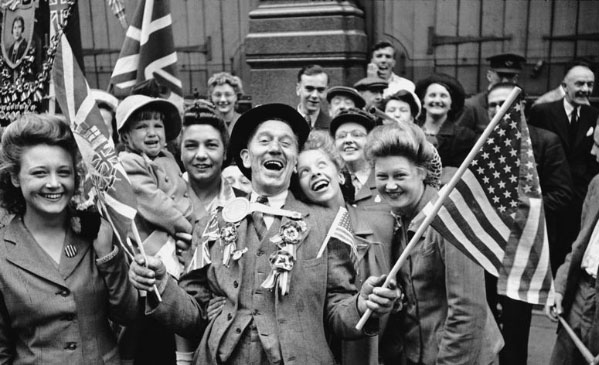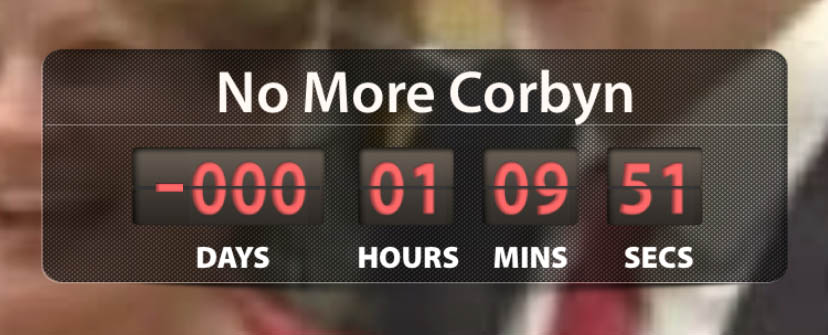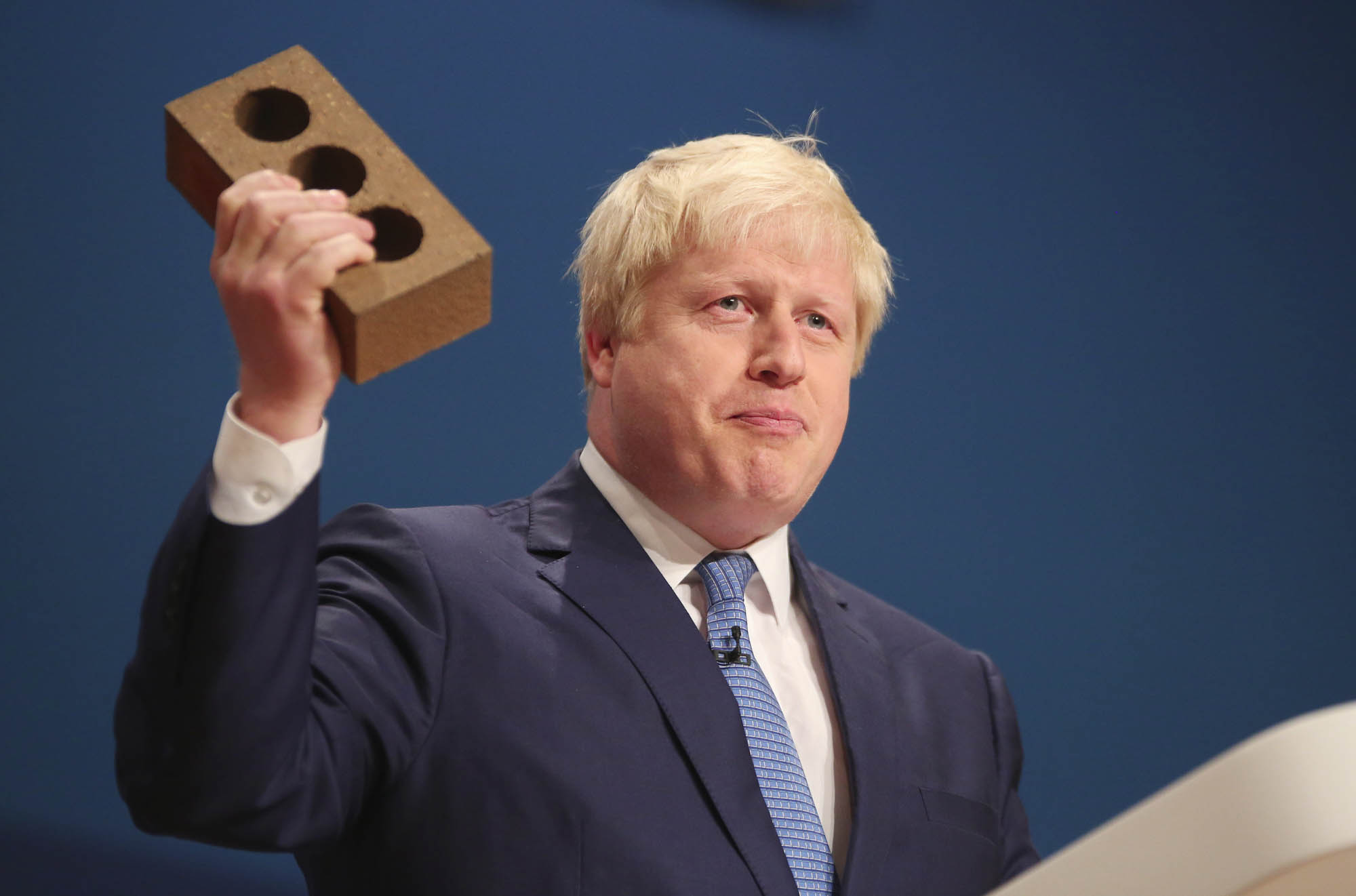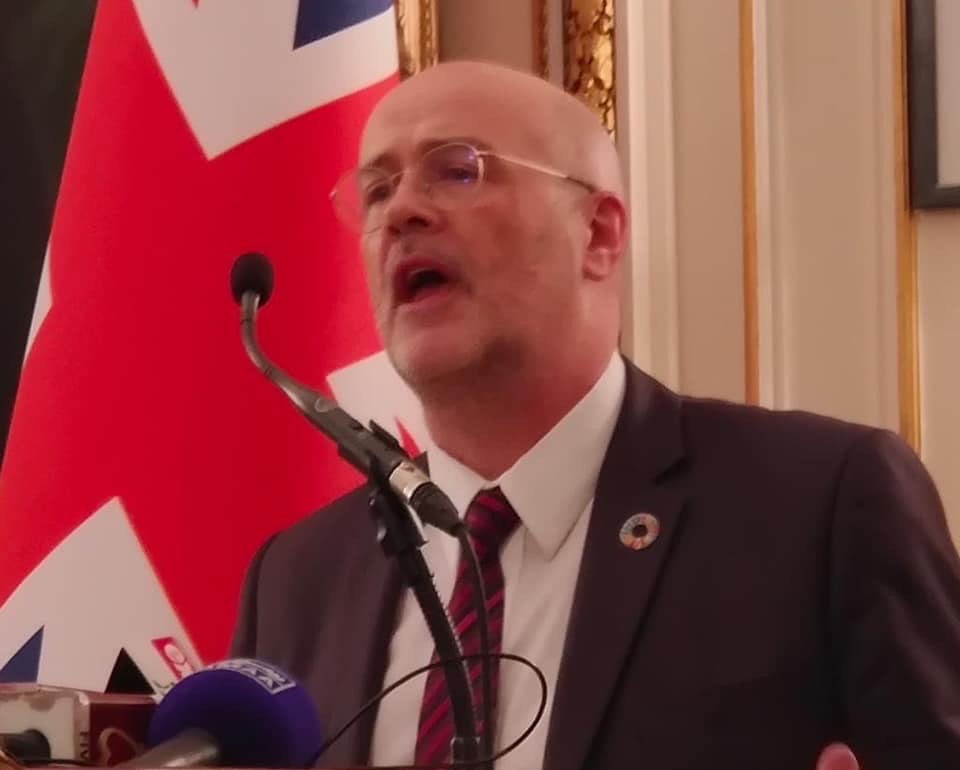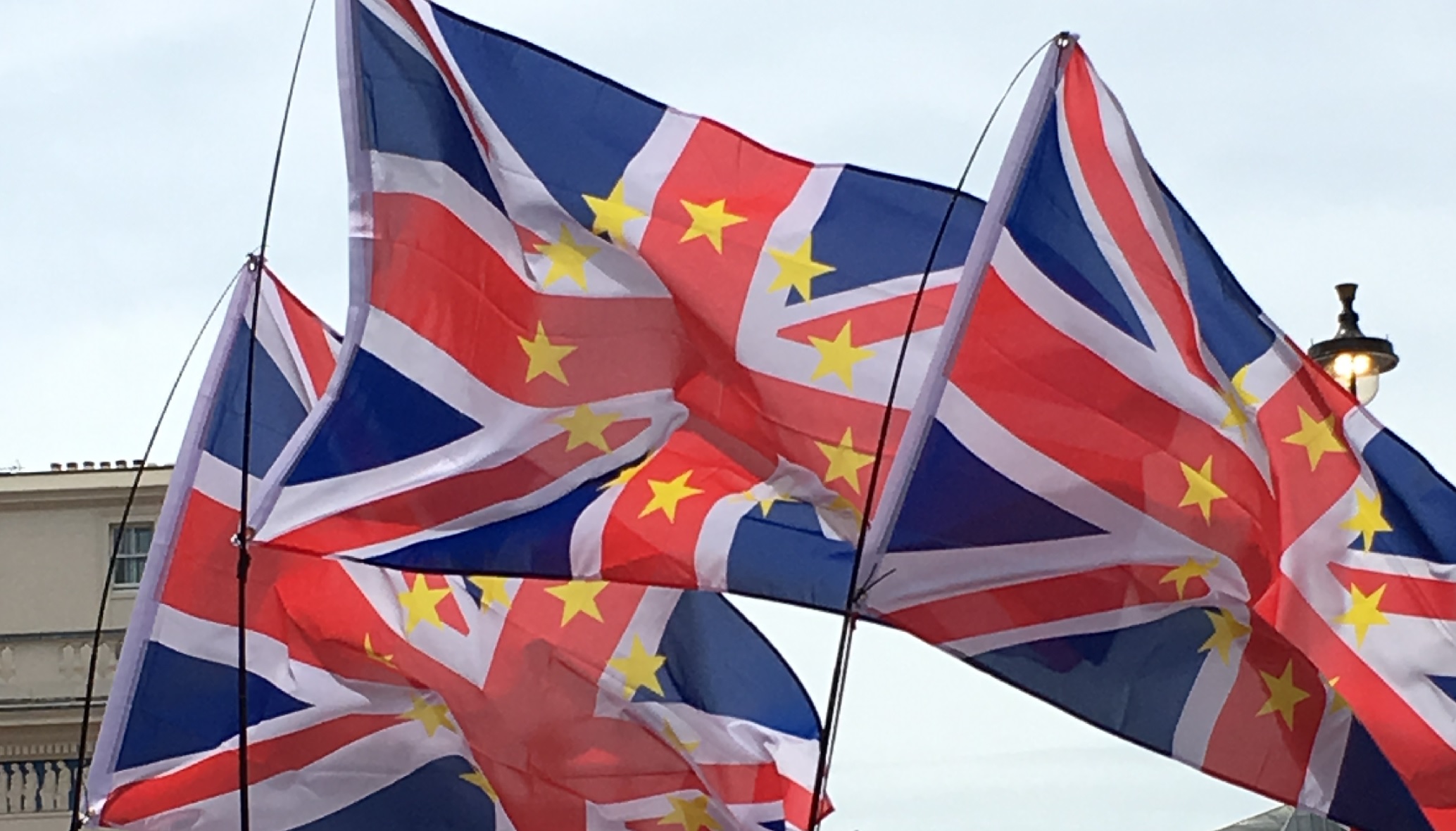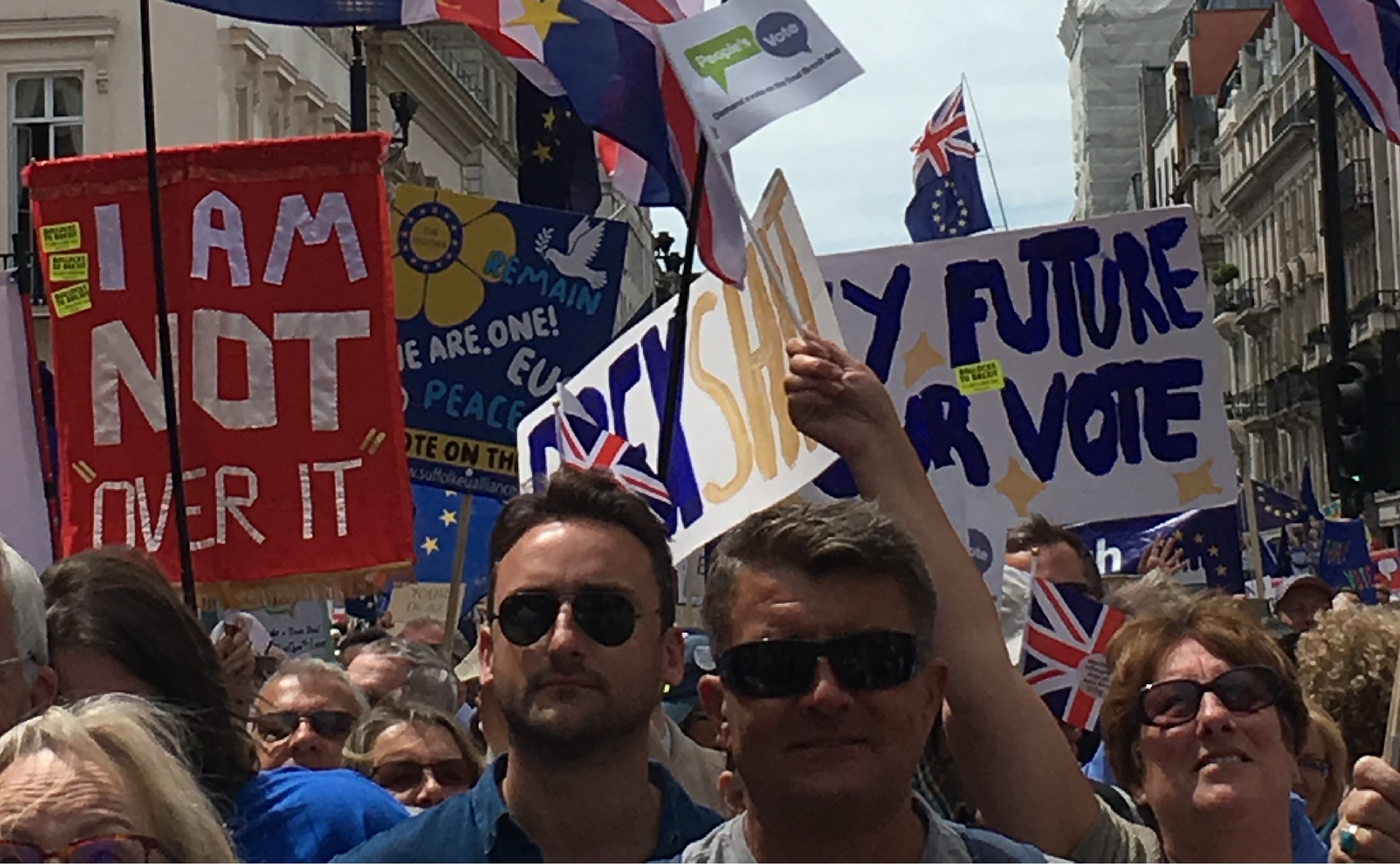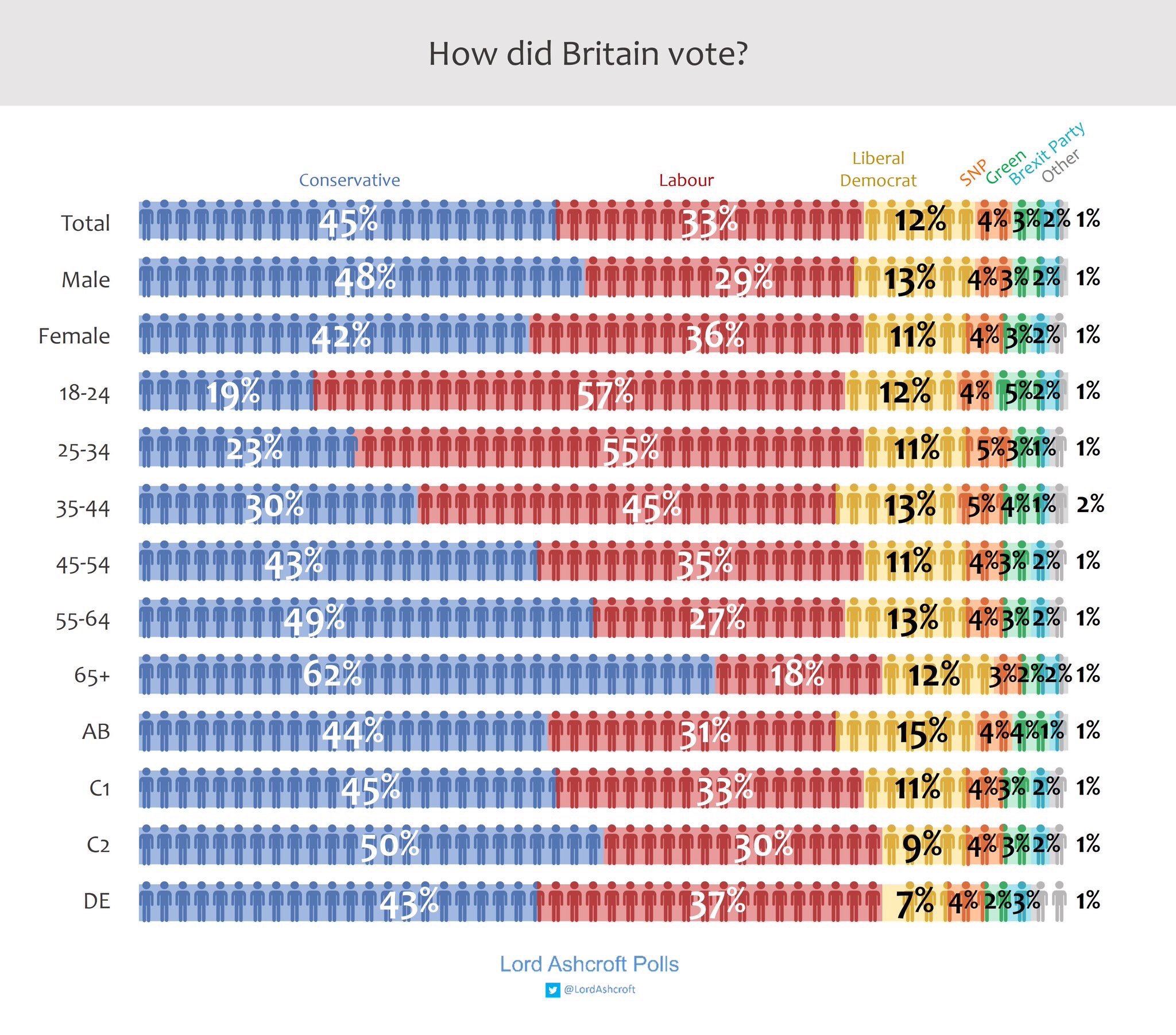A long read on why 'decent working class folk" like the "big silly toff"(1)
(above) long ago at a Conservative conference far away
A side-effect of the Covid-19 catastrophe is, for some, the retreat even further into the bubble of self-affirming social media. Inevitably, and perfectly reasonably, a whole lot of people who could do with getting out more will be getting out even less.
In his inspiring speech to the people of Ireland the Toasheach, Leo Varadka, pointed out that “spending too much time on social media at this time is a very bad idea”. Nonetheless, people will ‘go there’ regardless, largely into spaces peopulated by people like themselves. From my personal social media feeds I would be forced to conclude;
- that the great majority believe Boris Johnson is making a terrible horlicks of the current crisis;
- that the UK electorate would prefer just about anybody else in the job; and
- that Dominic Cummings is the malevolent spawn of Satan.
I would be wrong. While the third point may well be true, the conclusions on Mr Johnson are wildly at odds with those of the population at large.
That rather more objective source, YouGov, indicates that, despite Boris Johnson’s visible discomfort, stumbling communication and lack of clarity on key issues, around 50% of UK voters think he is doing just fine. It was a view confirmed by other polls even before the Coronavirus crisis hit and as the unlockdown becomes more of a lockdown Bozza’s approval rating rises further (2). All this seems to make Labour people incandescent with rage - how on earth could decent Labour voter back this appalling man? Of course Mr Johnson is still aided by comparison to the Ghost of Corbyn Passing - who’s personal ratings soundly underpin the idea that he has been on the right side of history and has been entirely vindicated by events since he won the argument in December and confirms every single thing he had ever said about anything.
At some point that we cannot yet foresee the events of the past weeks will be the subject of enquiry, formal or historic, but whatever the rights and wrongs of the government’s handling of events, Mr Johnson’s appeal remains an asset to the Conservatives. Unless Labour comes to terms with that uncomfortable fact and attempts to understand Johnson’s perverse popularity it has little chance of taking him on effectively.
So what might explain Boris Johnson? On the face of it Johnson’s appeal is strange indeed. Self-deprecation, a bit of humour and some basic oratorical tricks can get you quite a long way among a field of cloned mediocrity and media semi-savvy. But Prime Minister? Winning lots of Labour seats? Really? There are those, and I have good reason to believe them, who contend that ‘Johnson the Joker’ is all something of an act. In private, these accounts go, he is altogether more serious, randomly grumpy and not at all affable. But so what? Does it matter? Clearly not much. As politicians we put on our uniforms, don our public persona and go to work, we come home peopled out, take off the suit and chill (3) - it’s how you stay sane.
The uncomfortable fact is whatever the private Boris, those who voted for him and approve of his actions thus far find him ‘relatable’ in a way that other politicians are not. Boris Johnson is different to ‘them’ - he’s more like ‘us’. Labour activists find this inexplicable - how can ‘working class’ people believe that this rich old Etonian be remotely like them? Simon Walters, writing what is essentially a fan piece in The Spectator, nonetheless sets some uncomfortably good points about the basis of Johnson’s appeal to non-Tory voters. Walters is certainly on the right track – but in my view doesn’t go the whole way.
King of chaos
Boris Johnson is not a smooth operator. He is permanently at war with his clothes, his hair is a mess (these days covering up a few gaps), the tie is too long and a lot wrong, the suit doesn’t fit, it’s all a bit off. Boris doesn’t really know his lines. He ‘ums’ and ‘ers’ during his delivery, he struggles to remember - or appears to. He contradicts himself and he reverts to whatever the slogan of the day might be. At times he doesn’t appear to know what to say. Slick it is not.
During the election campaign, in the one debate for which he showed up, he did well enough. He repeated his central messages but he hardly dispatched his feeble opponent anything like as easily as he should have. Political commentators and observers see a lazy, poorly prepared performer getting away with content-lite bluster. Voters see someone who isn’t putting on a show, someone who is flawed and human, someone who doesn’t necessarily have answers and someone who is not rehearsed, coached or polished.
That said, Boris Johnson is believably ‘brainy’. He displays his cleverness by coming out with the occasional bit of Latin or some factoid from the Trivial Pursuit Ancient Greece Edition. Spectacularly pointless knowledge this may be, but it displays the notion of the ‘good school’ trustworthiness that British votes have always found mildly impressive whether from a Labour or Tory leader. But at the same time Boris Johnson, who could easily be a Geoffrey Willans character, puts out there the dismal English disdain for the ‘overly clever’. The “Cameron is a girly swot” incident was too good to be true – spin of the first order putting out the a mild mistrust of those who try too hard. Middle class, educated liberal folk, especially the massed ranks of Labour schoolteachers, find this reprehensible - but the constituency to which he sets out to appeal laps it up (4). They mostly hated school. To the degree-free, Boris Johnson’s ‘brainyness’ is not intimidating - and not a threat to their manhood.
Lad or Cad
Not that many years ago a potential Prime Minister with more domestic baggage than Terminal 5 would have been inconceivable. In some ways I hope Johnson getting to No 10 represents an irreversible shift away from the days when private lives terminates public lives though somehow I’m not so sure. Boris Johnson seems to get away with more than many, and certainly any woman, would be allowed. There is some polling evidence that Mr Johnson’s appeal is skewed somewhat away from women - hardly surprising, his ‘track record’ of fidelity is not strong. I can’t see that through a woman’s eyes but I’m told it doesn’t play too well. But then he doesn’t pretend - and perhaps that is why many forgive it or just dismiss it as irrelevant.
For many men, however, it is more simple: Boris Johnson is reassuring. He’s a bit of a state, he’s a bit overweight but he’s still got a girlfriend young enough to be his daughter - all of which says ‘if he can any man can’! Men like that, honest. He doesn’t seem to know how many children he has and he doesn’t seem to be a terribly dutiful father - which for those who inhabit the same space, and there are quite a few, it confirms that it’s all OK – don’t mug yourself. The mistresses and the affairs all appeal to a very basis male instinct - like it or not, biologically men are not wired for monogamy. Humans have not evolved so far as to leave behind the primal male instinct to breed. To men Boris’s love life is confirmation that their instincts are OK - and it doesn’t really matter whether its a man who acts on their urges or not; its either confirmation that its OK to behave like him or you can tell yourself that you behave better than him. The chaotic life of Boris Johnson excuses his privileged background, it proves that underneath he is ‘just like us’. Many people, men and women, have chaotic lives it’s reassuring that Boris doesn’t apologise for being a personal screw up - in fact it of makes it OK for the rest of us.
Plain speaking
It is hard to explain to people of the liberal left just how offended and alienated many ‘ordinary working class’ folk are by ‘political correctness’. Alienation with a side order of confusion about what it is and isn’t deemed acceptable to say these days (5). These are not, for the most part, hideous racists, not closet gay-haters (6) and neither misogynists. They certainly do not think of themselves as such. I can recall numerous occasions where the everyday language of everyday people has been condemned as unacceptable. I’ve watched people react to it feeling belittled and inferior - it isn’t pretty. At the very least the condescension confirms their false victimhood. These people, as often as not, are - or at least were - the people who vote Labour.
Boris Johnson says things that are wildly condemned by liberal left activists or by Labour MPs but are often the things that everyday people say or think. Attacking Johnson’s calculated use of language, which always generates copy, is understood by those people who would unthinkingly say the same things as an attack on them. There is not much does him more good that a good spat of outrage – and, yes, damned if you do and damned if you don’t, that’s the elephant trap.
To those over the age of 55 (they vote), who remember the seventies, this is a particularly problematic. In the past 40 years the boundaries of acceptability in popular culture and the media have moved massively and quickly and it is another aspect of the changing world with which many people struggle. I hear this reflected in conversations all the time - in bars, on trains, at football grounds and beneath it is a frustration with “who decides” whether this term or that term is unacceptable? This is probably where the maligned ‘liberal metropolitan elite’ are most resented. Terms are unacceptable because the ‘liberal metropolitan elite’ say they are unacceptable and those people - the school teachers, lecturers, social workers, assorted lefties and so on “look down on people like us” and not only that, “they think they are better than us”. Boris Johnson, chaotic ‘morally flawed’ individual that he is, is in no position to look down on anybody - even though we all know he’s posh - he says the things others don’t say - to an extent. Outliers like Farage appeal only to a minority, Johnson reflects a wider frustration and provides a contrast to a deeply unpopular aspect of the left - its self-righteous moral superiority.
Posh boy
Boris Johnson is a posh boy. Eton and Baliol followed by a mixed career in journalism. He’s got plenty of money. What is there with which ordinary voters could identify? This is an area that the left has rarely understood. People, outside of Labour Party meetings and trade union rotten borough committees, really don’t care about the background of their public representatives and they couldn’t care less if they are wealthy or not. Because you know what? They would quite like to be wealthy themselves. They like a bit of glamour, a bit of bling. Here again is the contrast with Labour and the liberal left personified. Labour’s solidly middle class base seems to sneer at best and viscerally hate at worst the notion that people might ‘get on’ in life. Johnson’s obviously moneyed background, of which he makes no secret, is more acceptable than the perceived hypocrisy of the left - who “all have money but pretend they don’t”, “you lot say class shouldn’t matter, but it seems to matter to you” or even, “he can’t help being rich”.
Keep smiling through
British humour isn’t unique - but it is both distinctive and widely appreciated. Boris Johnson reflects that. Not only does he do self-deprecation pretty well, he is unafraid to look entirely ridiculous. He knows this will get reported and he knows it will be fine as long as he doesn’t show the slightest embarrassment. Once again, his opponents rarely get it – far from being a disaster, getting stuck on that zip wire was one of the best things that ever happened to Bozza.
Here again the contrast with the humourless, self-righteous politically correct left couldn’t be greater. Boris Johnson’s leadership followed a period when British politics had been unremittingly miserable. Every forecast pessimistic, every likely outcome worse than the status quo, every scenario gloomy - things can only get worse. That isn’t what people what from their leaders - the successful leaders have known this. McMillan, Wilson, Heath, Thatcher, Blair - all won on optimistic platforms. The pious and the overly serious are rarely winners, the utterly miserable always fail. Every single Labour speaker I have heard over the past few years has started trotting out the same grim litany of how dreadful life is under the Conservatives, failing to realise that is often not how those to whom they are seeking to appeal see their lives. Boris Johnson provided optimism - an upbeat view of the future that contrasted sharply with the immediate past and the hair-shirted hypocrisy of Corbynite Labour.
Crisis, What a Crisis
How does all this square with Mr Johnson’s handling of the current Coronavirus crisis? First and foremost his looking uncomfortable and awkward is entirely in tune with his ‘being real’. It would be really worrying if he was reveling in it. When he says that he doesn’t want to tell people to stay at home, he doesn’t want to tell them not to travel, he’s entirely believable – for once he doesn’t have an issue with telling the truth. His tone on his broadcast to the nation was wrong in places but his reluctance to impose otherwise illiberal controls on movement and activity, seriously limiting fun, aids the view that he is genuine, “doing his best”. The Government - in my view - has cleverly nudged public opinion in such a way as to see a series of limitations on personal freedom positively welcomed by the majority. Meanwhile in the darker recesses of Twitter the rage demons celebrate his contracting the virus (7), peddle insane conspiracy theories that it is all a PR stunt or tut at his inability to follow his own government’s guidelines. Seriously? He's a politician, meeting people is the job!
Putting it all out there
It’s all out there. Boris John’s life is in the papers, on the TV, on Twitter. Like his personality or loath it, you cannot deny that at least he has one. He set out to be a celebrity long before he had an elected role and he is comfortable being a celebrity in a celebrity age. He seems to play to the rule that the more you put out there the less there is to dig for – and if they find something, who cares? Don’t apologies, don’t explain. Those who disapprove of reality shows tend also to disapprove of Boris Johnson. Reality shows are, however, rather popular.
I have asked quite a few people their view of Boris Johnson, or if they could explain why they voted for him. The response, more often than not, was framed in reference to the alternative on offer in December. The contrast with Corbyn, for some Johnson was the best of an unacceptable choice on offer, for others the justification for backing a man they know, instinctively, to be somewhat disreputable, others, as always, made it their justification for voting Tory when they know their own party is less than ideal. The contrast for all of them seems to be also about the world they would prefer: free speaking, uncontrolled, optimistic, not overly clever, comfortable with how they are and not having to justify themselves or apologise for what they think. Boris Johnson is somebody they would be comfortable chatting to or having a drink with without being overawed, who would take a selfie with them whether they were going to vote for him or not. Labour’s next leader will almost certainly be a different proposition. But they will need to understand the nature of Boris Johnson’s appeal and find a brand of their own to contrast but with which voters can feel at least generally at home. Whatever the new leader does they should understand that playing the man against Boris Johnson is futile – it will simply play into his hands.
Footnotes
(1) So said the great Billy Connelly. He's allowed. Meanwhile it is worth considering whether these supposedly 'working class' people even think of themselves that way. Now, or in fact, ever.
(2) Fair to say that just about every leader's ratings across the globe have risen in this context - except Kim Jong Un's which were already +250%
(3) Although I don't imagine Gordon Brown did this.
(4) Always remember that elections in the UK are swayed by 20% of voters in marginal or target seats. There are plenty of people who vote Tory who find this view appalling, work hard and press the importance of education on their children. But they were largely going to vote for Johnson anyway.
(5) I meet genuinely nice, intelligent people who really are baffled by it all - and that's not even mentioning the 'trans' issue. It has never been clear to me how berating them, calling them racist or sexist or whatever is likely to persuade them of your case.
(6) I have a problem with the word (whatever)phobic - I think is excuses prejudice by giving psudo-psychological terminology.
(7) Very bad karma.

